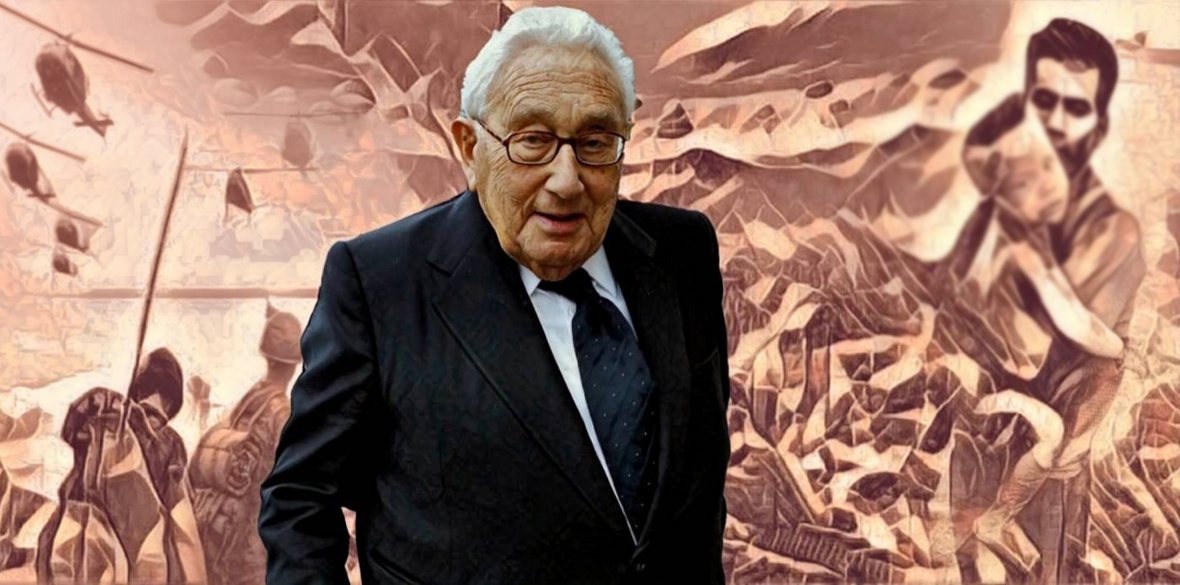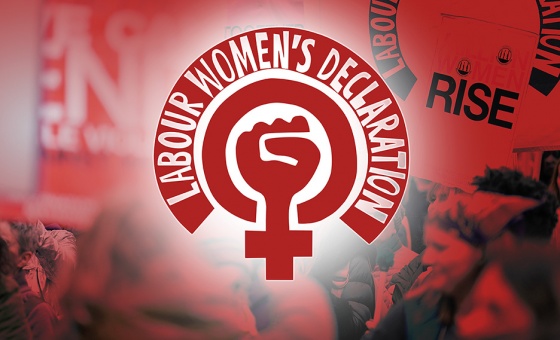This is the last article you can read this month
You can read more article this month
You can read more articles this month
Sorry your limit is up for this month
Reset on:
Please help support the Morning Star by subscribing here
WHEN it comes to foreign policy, Henry Kissinger is one of the most important voices in the US.
For many years he was the national security adviser. He also served as secretary of state under presidents Richard Nixon and Gerald Ford.
In the early 1970s, he masterminded the rapprochement between the US and China to isolate and weaken the then-USSR.
The 99-year-old Kissinger is not a wimp. He was directly involved in the 1973 coup in Chile and also in the extremely brutal Vietnam war.
A call for rapid peace negotiations
On December 17, he wrote a remarkable article for the Spectator. In it, he calls for a quick end to the fighting in Ukraine and peace negotiations. Otherwise, he fears there will be a new world war.
He notes that Ukraine has had several successes in its defence against Russia: “Ukraine has acquired one of the largest and most effective land armies in Europe [through this war], equipped by the US and its allies.”
The country has also become de facto integrated into Nato and therefore “neutrality is no longer meaningful.”
That is why, according to Kissinger, it is time for the West to turn those successes into political realities.
“The time is approaching to build on the strategic changes which have already been accomplished and to integrate them into a new structure towards achieving peace through negotiation.”
Such a peace process should, on the one hand, cash in on successes and “confirm the freedom of Ukraine.” On the other hand, we must “define a new international security structure for central and eastern Europe” in which Russia “should find a place.”
Kissinger calls for a ceasefire along the borders where the war began on February 24 2022: “Russia would disgorge its conquests thence, but not the territory it occupied nearly a decade ago, including Crimea. That territory could be the subject of a negotiation after a ceasefire.”
If no agreement can be reached on the pre-war dividing line, then “recourse to the principle of self-determination could be explored. Internationally supervised referendums concerning self-determination could be applied to particularly divisive territories which have changed hands repeatedly over the centuries.”
Frivolous belligerence
Kissinger calls the idea which prevails in some warmongering circles of defeating Russia militarily and then splitting it up unwise, frivolous and dangerous.
“The preferred outcome for some is a Russia rendered impotent by the war. I disagree. For all its propensity to violence, Russia has made decisive contributions to the global equilibrium and to the balance of power for over half a millennium. Its historical role should not be degraded.”
A “dissolution of Russia” or a total weakening could turn the largest country in the world “into a contested vacuum.” Given the large number of nuclear weapons, the result would be an extremely dangerous powder keg, where other countries “might seek to expand their claims by force.”
Moreover, such a defeat is far from obvious. Russia’s military setbacks “have not eliminated its global nuclear reach, enabling it to threaten escalation in Ukraine.”
As we say here in Holland, “A cornered cat can make strange jumps.”
Kissinger’s two motives
Two motives make Kissinger advocate peace negotiations. On a strategic level, he thinks the US and the West are overplaying their hand in this conflict. Not only is weakening Russia not an option, but by escalating this conflict, the West risks driving Russia into the hands of China, creating a powerful enemy.
In the Wall Street Journal on August 12 2022, he wrote: “We are at the edge of war with Russia and China on issues which we partly created, without any concept of how this is going to end or what it’s supposed to lead to.”
He argued that the US can better control two such enemies by compromising between them, as happened under Nixon. He offered no simple prescription: “You can’t just now say we’re going to split them off and turn them against each other. All you can do is not to accelerate the tensions and to create options.”
On a tactical level, Kissinger wants quick negotiations to preserve the territorial gains made on the battlefield as much as possible.
According to the Economist, Ukraine is running out of ammunition for its anti-aircraft systems and needs better missile defence systems.
It will probably be months before the more effective Patriot missiles promised by the US are operational.
Meanwhile, Russia is preparing for a new offensive. Possibly as early as January, Russian troops could launch a major attack.
In doing so, they would try to drive back the Ukrainian army and could even make a second attempt to take the capital Kiev.
That may be why Kissinger advocates getting to the negotiating table as soon as possible.
Judging by the current war rhetoric of Ukrainian President Volodymyr Zelensky, peace negotiations stand little chance at the moment. But in every war, there is a great gulf between propaganda and reality.
Behind the scenes, the US government, Ukrainian officials and other Western allies have been having quiet conversations about what a diplomatic solution could ultimately look like.
Kissinger is unaffected by the war fever surrounding this conflict. He appeals to common sense and calls on politicians to develop a strong vision and muster political courage: “The quest for peace and order has two components that are sometimes treated as contradictory: the pursuit of elements of security and the requirement for acts of reconciliation.
“If we cannot achieve both, we will not be able to reach either. The road of diplomacy may appear complicated and frustrating. But progress to it requires both the vision and the courage to undertake the journey.”










